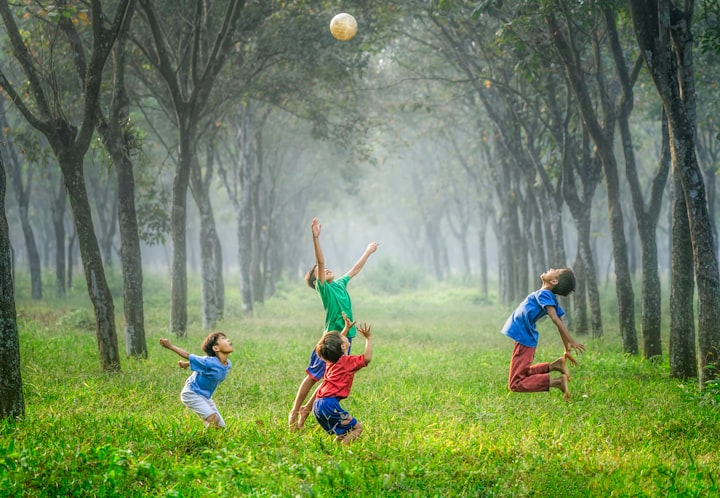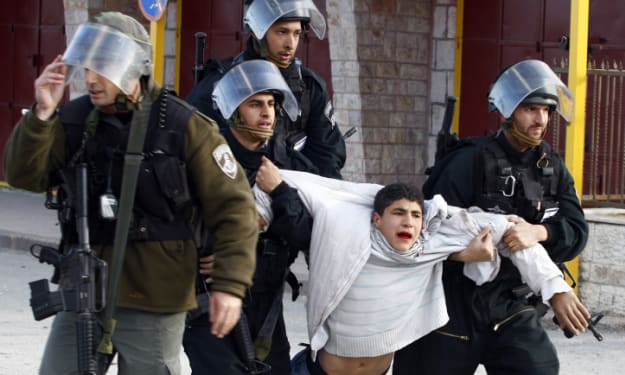Protecting Innocence Amidst Conflict: Our Collective Responsibility
The Duties of Governments and the Global Community in Safeguarding Lives

The human toll of war is an indescribable tragedy, and it is especially heart-wrenching when innocent children and families become the unintended victims of conflict. The ongoing conflict in Gaza has resulted in the loss of countless innocent lives, and the stories of these children and their families serve as a stark reminder of the urgent need for peace and stability in the region.Innocent children in Gaza, like any children worldwide, have dreams and aspirations. They have the right to grow up in a safe and nurturing environment, to receive an education, and to have a chance at a brighter future. However, the harsh reality for many of them is quite different. They have grown up amidst the sounds of sirens and explosions, with fear and uncertainty becoming a constant presence in their lives.Families in Gaza, too, have been living under the constant threat of violence for years. The conflict has taken a heavy toll on their homes, their livelihoods, and most devastatingly, on the lives of their loved ones. Innocent mothers, fathers, and grandparents have been lost to the horrors of war, leaving behind a legacy of grief and trauma that will shape the lives of those who survive.
It is crucial to remember that these children and families are not statistics. They are individuals with unique hopes, dreams, and stories. They are resilient in the face of unimaginable adversity, and their strength and courage are awe-inspiring.While the conflict is complex and deeply rooted, it is essential to emphasize the urgent need for peace, dialogue, and diplomacy. The cycle of violence and suffering must be broken to prevent more innocent lives from being lost. It is our collective responsibility as a global community to advocate for peace and support humanitarian efforts in the region.
Ultimately, we must remember that every child and family in Gaza deserves a life free from the horrors of war, a life where they can dream, learn, and grow. Their stories should serve as a stark reminder of the human cost of conflict and motivate us to work tirelessly towards a future where such tragedies are relegated to history.
why Governments Hold Responsibility:
Safeguarding Citizens: The primary duty of any government is to protect the lives and well-being of its citizens. This fundamental responsibility extends to all, especially to the most vulnerable, which includes children and families. Ensuring their safety during times of conflict is a moral imperative.
Promoting Peace: Governments have the power to enact policies and engage in diplomatic efforts to prevent and resolve conflicts. Peaceful conflict resolution not only minimizes the loss of innocent lives but also contributes to long-term stability and development.
Upholding Human Rights: Governments are signatories to various international treaties and conventions that outline the rights and protections afforded to their citizens. These include the right to life, security, education, and access to essential services. Upholding these rights is not only a legal obligation but also a moral one.
Accountability: Governments are responsible for ensuring that those who commit acts of violence against civilians are held accountable for their actions. This may involve investigations, prosecutions, and the pursuit of justice for victims.
How Governments Can Fulfill Their Responsibilities:
Diplomacy and Conflict Resolution: Governments can engage in diplomatic efforts, both domestically and internationally, to prevent conflicts or seek peaceful resolutions. This includes negotiation, mediation, and international cooperation to address the root causes of conflicts.
Protection and Safety Measures: Governments can establish measures to protect civilians, especially children and families, during conflicts. This may include creating safe zones, ensuring humanitarian access, and implementing early warning systems to reduce harm.
Access to Basic Services: In conflict zones, governments should collaborate with humanitarian organizations to ensure the provision of basic services like healthcare, education, and clean water. Access to these services is vital for the well-being and survival of those affected by conflict.
Why the Global Community Holds Responsibility:
Universal Humanitarian Values: The global community is bound by a shared commitment to humanitarian values and human rights. The suffering of innocent children and families in conflict zones violates these values and necessitates collective action.
Preventing Escalation: Conflicts can have regional and global repercussions. The international community has an interest in preventing the escalation of conflicts that may lead to further instability and global repercussions.
How the Global Community Can Fulfill Their Responsibilities:
Advocacy and Diplomacy: The global community can exert diplomatic pressure on conflicting parties to cease hostilities and engage in peace talks. Collective advocacy efforts can influence parties in conflict and encourage peaceful resolutions.
Humanitarian Aid and Relief: International organizations, as well as governments, can provide humanitarian assistance, including food, shelter, and medical care, to affected populations. This support ensures the immediate survival and well-being of those caught in conflict.
Refugee Protection: The global community can work together to provide refuge and support for refugees who are displaced due to conflict. This includes offering safe havens, supporting refugee camps, and working towards durable solutions for those who have fled their homes.
Raising Awareness: By raising awareness about the plight of innocent children and families in conflict zones, the plight of innocent children and families in conflict zones, the global community can advocate for their protection. Public awareness can lead to increased support for humanitarian efforts and diplomatic solutions.
In conclusion, governments and the global community share a profound responsibility to protect innocent children and families during conflicts. This shared duty is not only based on moral and ethical principles but is also legally enshrined in international agreements. By fulfilling these responsibilities through diplomatic efforts, humanitarian aid, advocacy, and the protection of human rights, we can work towards creating a world where innocent lives are no longer torn apart by the horrors of war.
About the Creator
Alexander jackson
"Captivating tales and life's wisdom – join me on a journey of shared experiences through words. Let's explore, learn, and connect together!"






Comments
There are no comments for this story
Be the first to respond and start the conversation.